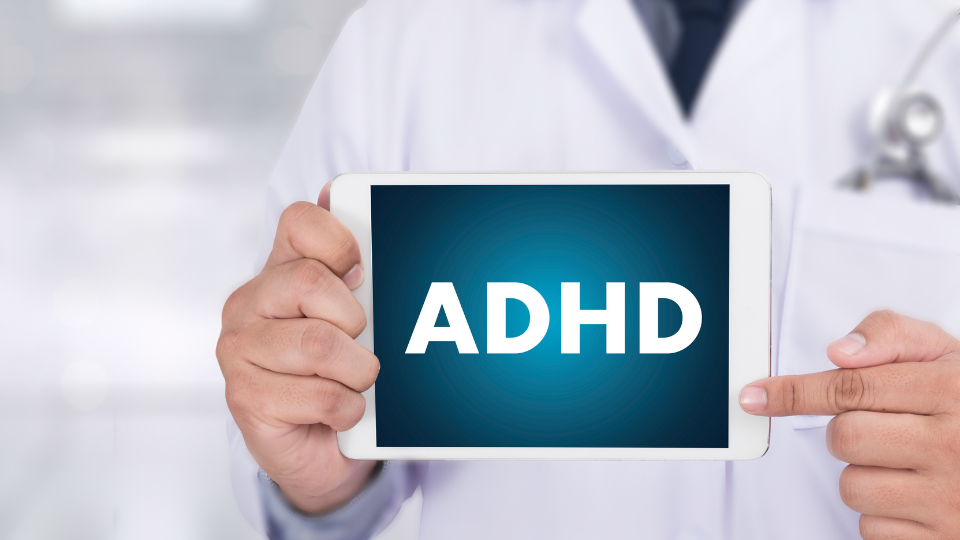Attention Deficit Hyperactivity Disorder (ADHD) is a neurodevelopmental disorder that affects millions of children and adults worldwide. It can manifest as difficulties in maintaining attention, hyperactivity, and impulsiveness, leading to challenges in academic, professional, and personal settings. Traditionally, diagnosing and treating ADHD has involved in-person consultations with healthcare professionals, which can be time-consuming and sometimes inaccessible. However, with the rise of telehealth services, patients now have more options than ever before. This article explores how telehealth can facilitate ADHD treatment and why platforms like Doctronic are leading the charge in this innovative field.
The Role of Telehealth in ADHD Diagnosis
Telehealth has revolutionized the way healthcare is delivered, making it easier for patients to access medical advice and treatment from the comfort of their homes. For individuals seeking an ADHD diagnosis, telehealth offers several advantages.
 Accessibility and Convenience
Accessibility and Convenience
One of the primary benefits of telehealth is its accessibility. Patients no longer need to travel long distances to see a specialist, which can be particularly beneficial for those living in rural or underserved areas. With platforms like Doctronic, individuals can connect with healthcare professionals who specialize in ADHD, ensuring that they receive the appropriate care without the hassle of commuting.
Moreover, telehealth appointments can often be scheduled at times that are convenient for the patient, reducing the stress associated with traditional office visits. This flexibility can be especially important for parents of children with ADHD, who may have to juggle multiple responsibilities. The ability to have appointments during evenings or weekends can make a significant difference in ensuring that families can prioritize their health without disrupting their daily routines.
Additionally, telehealth platforms often provide resources and tools that can enhance the patient experience. For instance, many services offer educational materials, symptom checklists, and interactive tools that help individuals better understand ADHD and its implications. This proactive approach not only empowers patients but also fosters a more collaborative relationship between them and their healthcare providers.
Immediate Access to Expertise
With telehealth, patients can access a wide range of specialists quickly. For ADHD, it is crucial to consult with professionals who are knowledgeable about the latest research and treatment options. Doctronic utilizes advanced AI technology to provide comprehensive answers and recommendations based on the most current medical expertise.
This immediacy can lead to faster diagnoses and treatment plans, which is essential for managing ADHD effectively. The sooner a patient receives a diagnosis, the sooner they can begin treatment and develop coping strategies that improve their quality of life. Furthermore, the ability to have follow-up appointments via telehealth enables ongoing monitoring of symptoms and treatment efficacy, allowing for real-time adjustments without the need for in-person visits.
Moreover, telehealth can facilitate a more comprehensive approach to ADHD management by allowing for collaboration among various healthcare providers. For example, a patient might consult a psychiatrist for medication management while simultaneously working with a psychologist for behavioral therapy, all through the same platform. This integrated care model can lead to more cohesive treatment strategies tailored to the unique needs of each patient, ultimately improving outcomes and enhancing the overall management of ADHD symptoms.
Telehealth Treatment Options for ADHD
Once diagnosed, patients can explore various treatment options through telehealth platforms. These options typically include medication management, therapy, and lifestyle modifications, all of which can be effectively monitored and adjusted remotely. The flexibility of telehealth not only allows for regular check-ins but also accommodates the unique schedules of patients and their families, making it easier to integrate treatment into daily life.
Medication Management
For many individuals with ADHD, medication is a key component of their treatment plan. Telehealth allows for convenient medication management, where patients can consult with their healthcare providers about their prescriptions without needing to visit a clinic in person. This is particularly beneficial for those who may experience side effects or require adjustments to their medication. Moreover, telehealth can facilitate more frequent follow-ups, ensuring that any concerns regarding medication efficacy or tolerability are addressed promptly.
Doctronic facilitates this process by providing patients with a personalized experience. The AI-driven system can help track symptoms and the effects of medication, enabling healthcare providers to make informed decisions about treatment adjustments in real-time. Additionally, patients can access educational materials about their medications, empowering them to understand their treatment better and engage actively in their healthcare decisions.
Behavioral Therapy
Behavioral therapy is another critical aspect of ADHD treatment. Telehealth makes it easier for patients to engage in therapy sessions, whether through video calls or messaging platforms. This accessibility can lead to increased participation rates, as patients can attend sessions from home, reducing the stigma and anxiety that sometimes accompanies in-person visits. The comfort of being in a familiar environment can also enhance the therapeutic experience, allowing patients to open up more freely.
Therapists can work with patients to develop coping strategies, organizational skills, and techniques to manage impulsivity and hyperactivity. The ongoing support provided through telehealth can be invaluable, as patients can receive immediate feedback and encouragement from their therapists. Furthermore, many telehealth platforms offer interactive tools and resources that can be utilized during sessions, making therapy more engaging and effective for patients of all ages.
 Parental Support and Education
Parental Support and Education
For children with ADHD, parental involvement is crucial. Telehealth platforms often provide resources and support for parents, helping them understand the disorder and learn effective strategies for managing their child's behavior. This can include online workshops, support groups, and one-on-one consultations with specialists. By providing parents with the tools they need, telehealth can significantly enhance the home environment, fostering a more supportive atmosphere for children as they navigate their challenges.
By engaging parents in the treatment process, telehealth fosters a collaborative approach to managing ADHD, ensuring that children receive consistent support both at home and in therapeutic settings. Additionally, many platforms offer forums where parents can connect with one another, sharing experiences and advice, which can be a source of comfort and solidarity in what can often feel like a lonely journey. This community aspect not only empowers parents but also helps to normalize the challenges associated with ADHD, promoting a broader understanding of the condition in society.
The Benefits of Using AI in Telehealth for ADHD
Artificial intelligence is transforming the landscape of telehealth, particularly in the realm of ADHD treatment. AI-driven platforms like Doctronic offer unique advantages that enhance the patient experience.
Personalized Care
One of the standout features of AI in telehealth is its ability to provide personalized care. Doctronic, for instance, utilizes AI to remember patient histories, preferences, and treatment responses. This means that each time a patient interacts with the system, they receive tailored advice based on their unique circumstances.
This level of personalization is particularly beneficial for ADHD patients, as treatment often requires ongoing adjustments based on individual responses to medication and therapy. With AI, healthcare providers can quickly access a patient's history and make informed decisions about their care. Furthermore, AI can analyze patterns in a patient's behavior over time, helping clinicians identify triggers and effective coping strategies that are specifically suited to the individual. This not only enhances the therapeutic relationship but also fosters greater patient engagement and adherence to treatment plans.
Comprehensive Knowledge Base
AI systems draw on vast databases of peer-reviewed medical research, ensuring that patients receive the most up-to-date information regarding their condition. This is especially important in the field of ADHD, where new research and treatment modalities are continually emerging.
By leveraging AI, platforms like Doctronic can synthesize the latest findings and provide patients with evidence-based recommendations, empowering them to make informed decisions about their treatment options. Additionally, these AI systems can facilitate real-time updates on emerging therapies, clinical trials, and innovative practices, ensuring that both patients and providers are always equipped with the latest knowledge. This dynamic approach not only enhances the quality of care but also encourages a collaborative environment where patients feel actively involved in their treatment journey, leading to improved outcomes and satisfaction.
Challenges and Considerations
While telehealth offers numerous benefits for ADHD treatment, there are also challenges and considerations that patients should be aware of.
Technology Barriers
Not all patients have equal access to technology or the internet, which can create disparities in telehealth access. For some individuals, particularly those in low-income or rural areas, the lack of reliable internet service can hinder their ability to participate in telehealth appointments.
Healthcare providers must be aware of these barriers and work to ensure that all patients have access to the care they need, whether through alternative methods or by providing resources to help bridge the technology gap. Additionally, some patients may struggle with the technical aspects of telehealth platforms, which can lead to frustration and disengagement. Providing clear instructions and support for using these technologies can significantly improve patient experiences and outcomes.
Privacy and Security Concerns
Another significant consideration is the privacy and security of patient information. Telehealth platforms must adhere to strict regulations to protect patient data. Patients should feel confident that their personal information is secure and that their consultations are confidential.
Choosing a reputable telehealth service, such as Doctronic, can help alleviate these concerns, as they prioritize patient privacy and employ robust security measures to safeguard sensitive information. Furthermore, it is essential for patients to be educated about their rights regarding data privacy and to understand how their information will be used. This knowledge empowers them to make informed choices about their telehealth services and fosters a sense of trust in their healthcare providers.
The Future of ADHD Treatment with Telehealth
As telehealth continues to evolve, the future of ADHD treatment looks promising. The integration of advanced technologies, such as AI and machine learning, will likely enhance the effectiveness and accessibility of care.
Enhanced Monitoring and Support
Future telehealth platforms may incorporate wearables and mobile applications that track symptoms and behaviors in real-time. This data can provide healthcare providers with valuable insights into a patient's condition, allowing for more precise treatment adjustments.
Additionally, these tools can empower patients to take an active role in managing their ADHD, fostering a sense of autonomy and responsibility for their health.
Increased Collaboration Among Providers
Telehealth also facilitates greater collaboration among healthcare providers. Specialists, therapists, and primary care physicians can easily share information and coordinate care, ensuring that patients receive comprehensive support.
This collaborative approach is particularly beneficial for ADHD treatment, as it often requires input from multiple disciplines to address the various challenges associated with the disorder.
Telehealth: A New Era in ADHD Care
Telehealth has the potential to transform ADHD treatment by making care more accessible, personalized, and efficient. With platforms like Doctronic, patients can receive timely diagnoses, effective treatment plans, and ongoing support without the barriers of traditional healthcare settings.
As technology continues to advance, the future of ADHD treatment through telehealth looks bright. By leveraging AI and innovative tools, patients can expect a more tailored and effective approach to managing their condition, ultimately leading to improved outcomes and quality of life.
For those seeking assistance with ADHD, exploring telehealth options can be a game-changer. With the right resources and support, individuals can navigate their ADHD journey with confidence and success.
Experience the Future of ADHD Care with Doctronic
Embrace the cutting-edge ADHD treatment with Doctronic, where we combine the convenience of telehealth with the power of artificial intelligence. As the #1 AI Doctor, we're dedicated to providing you with the most personalized, efficient, and accessible care. Our free AI doctor visits provide immediate, high-quality care, drawing on the latest peer-reviewed medical research to address your concerns about ADHD. Plus, our telehealth video visits with board-certified doctors are available 24/7 across all 50 states, ensuring you get the support you need, whenever you need it. Join over 10 million people who have experienced the Doctronic difference. Skip the line. Talk to an AI Doctor Now, for free.



 Accessibility and Convenience
Accessibility and Convenience Parental Support and Education
Parental Support and Education